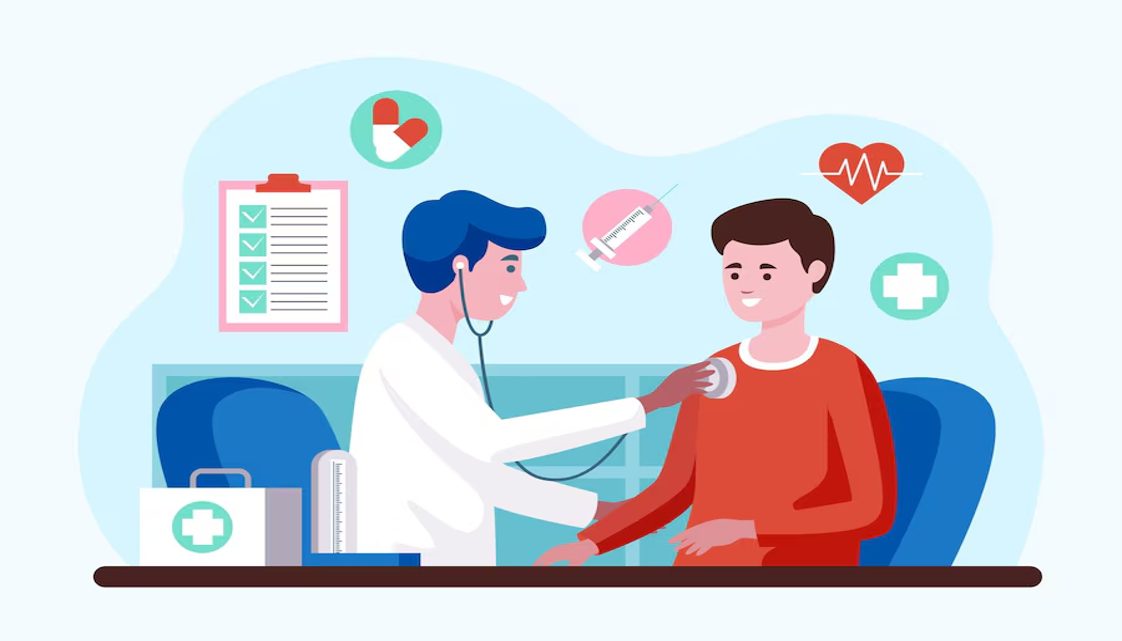
@ShahidNShah


Exercise can eventually be helpful for those who have been ill for a long time and wish to get better. It’s about how physical activity alters the body. It takes a lot of work to ensure that exercise programs for patients with cancer, diabetes, heart disease, gout, or any other medical condition are effective and suit their needs.
This blog article discusses how exercise can help sick individuals stay healthy. How can the way your body works during exercise help you deal with long-term health problems?
Exercise physiology studies healthy exercises for your body and muscles. Watch how exercise affects your knees, heart, and lungs. You should also look into how your body changes over time when you work out a lot.
Physiologists make workout plans for each person based on what they know. These plans help people get in better shape, heal faster, and deal with long-term health problems better. After that, each person receives a health, body type, and medical history-based training program.
People who work out while they are sick can stay in shape for a long time. It also helps with symptoms, makes life better, and can sometimes even slow the growth of some diseases. But working out by yourself can make things worse or even hurt you. At such point, seeking the assistance of an exercise physiologist is advised.
Researchers in this area look at the creation of effective and safe exercise regimens. You could help someone who is hurt move around better, stay healthy, or make sure that someone with diabetes doesn’t get too high in blood sugar.
People with diabetes must engage in frequent physical activity to prevent their blood sugar from getting too high. Your muscles may use glucose for energy while you exercise because insulin functions better at this time. Keep your diabetes under control. Exercise, strength training, and stretching regimens are available to the public. This is relevant for those who wish to maintain heart health yet are insulin-resistant. To prevent rises, their blood sugar is checked before, during, and after activity.
CAD and hypertension patients must exercise regularly. Blood pressure goes down, cholesterol stays low, and more blood flows through a heart that is strong even when you’re busy. Before making an organized exercise plan that includes aerobic activities like walking or riding a bike, exercise physiologists check the heart to see how well it can handle stress and exercise. These programs aim to improve heart health, circulatory systems, and weight management.
Joint pain is the main sign of arthritis. It could hurt your joints, lead to stiffness, and also harm mobility. Getting regular exercise might be able to help someone with arthritis, as it can reduce the pain to some extent. It can improve joint function, ease pain, and keep damage from getting worse. The exercise physiologist will give you a low-impact workout plan that will help you get stronger, de-stress, and adapt. The muscles around the joints get stronger when you do these moves. Your joints keep you from getting hurt more and give you more freedom of movement. However, it’s important to remember that exercise won’t be the only remedy for your joint pain. In your everyday life, implementing ergonomic best practices and following guides to ergonomic living can help relieve joint pain in the long term.
A chronic lung disease is COPD. You should work out every day if you have COPD and have trouble breathing. These folks will live longer if they exercise daily. Their muscles and lungs will become more robust. Exercise physiologists provide rehabilitation advice to patients with lung issues. Some of these can aid those who are having trouble breathing and are beneficial to the heart. Strength training may also be added to improve muscular function. Someone who is experiencing difficulty breathing and is not moving about much may find that their muscles are not functioning as correctly.
Cancer patients might have a wide range of positive outcomes during their recovery. Exercise can help you make better use of your body prior to, during, and following treatments such as chemotherapy or radiation therapy. Also, you’ll feel less worn out. Additionally, regular exercise can lower your risk of developing cancer. Exercise physiologists collaborate closely with oncology teams to create individualized fitness regimens tailored to each patient’s unique requirements. These regimens target side effects like weariness or muscle loss while concentrating on strengthening, increasing mobility, and enhancing cardiovascular health.
If you exercise while ill, there are additional factors that might make you feel worse. Regular exercise may also reduce your risk of stroke, heart attack, and progressive joint degeneration. Moreover, cardiac problems and diabetes continue to improve.
For this reason, those who have had long-term health problems have to become knowledgeable about exercise physiology. There are healthy and safe methods to exercise. Become a fitness trainer to get healthy. These treatments may help diabetes, arthritis, and heart sufferers. This subject can help people with chronic illnesses maintain their health and live better, busier lives.

We sit down with W. Ben Utley, a certified financial planner specializing in helping physicians navigate the unique financial challenges of their careers. We explore how doctors can break free from …
Posted Sep 20, 2024 Scheduling - Physician Personal Well-Being
Connecting innovation decision makers to authoritative information, institutions, people and insights.
Medigy accurately delivers healthcare and technology information, news and insight from around the world.
Medigy surfaces the world's best crowdsourced health tech offerings with social interactions and peer reviews.
© 2026 Netspective Foundation, Inc. All Rights Reserved.
Built on Jan 6, 2026 at 1:18pm